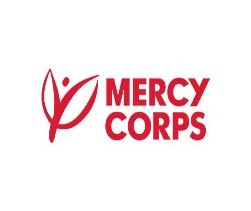Projects


GIRL-H
NARWOA is implementing a 8 months program targeting adolescent girls, boys, and young people in Uganda with funding and support from Mercy corps. The Sexual Reproductive Health, and Rights (SRHR) component of the Girls Improving Resilience through Livelihood and Health program supporting adolescents and young people in the uptake of SRHR information through a safe space approach. 73% of the enrolled participants completed the SRHR curriculum.
Goal: The programme aims to improve girls’ well-being by increasing their access to and uptake of life skills, health information, basic numeracy and literacy, and financial literacy, as well as foster pathways to formal education, economic opportunities, and civic engagement in Karamoja focusing on the following pillars: -1) Enhanced financial literacy and resource accessibility among target demographics. 2)Positive behavior changes in economic activities and civic engagements among GIRL-H participants .3) Strengthened public-private partnerships, leading to increased resources, influence, and support for GIRL-H initiatives 4) Promote Sexual Reproductive Health Right among GIRL-H participants 5) Promoting gender equality and environmental sustainability (Climate change gender equality and environmental sustainability (Climate change).
The following are the program objectives: –
- Educating communities to transform gender and social norms so that girls are valued and access their basic human rights
- Working with the public and private sectors to foster opportunities for education safe livelihoods and financial inclusion
- Adolescents and youth in Uganda have improved awareness and sustainable access to SRH health services and products.
- Improved gender attitudes toward girls’ uptake of SRH products and services. The operation areas for GIRL-H project in Kotido district included only the 08 sub counties/Divisions/town councils notably Kacheri, Rengen, Panyangara/Napumpum Nakapelimoru sub counties and North, West, South, Central divisions.

CCLAP
The Climate Change Leaders Advancing for Peace (CCLAP) project is a two-year initiative (November 2023 – October 2025) implemented by Mercy Corps and funded by the Austrian Development Agency (ADA). Operating in the conflict-affected regions of Karamoja (Uganda) and Turkana (Kenya), CCLAP aims to empower women, girls, and civil society organizations (CSOs) to address structural barriers to gender equality, promote sustainable natural resource management, and strengthen climate resilience to foster peace.
Key Objectives:
- Capacity Building: Enhance the abilities of women, girls, and CSOs to tackle gender inequalities and vulnerabilities exacerbated by climate change and conflict.
- Leadership Development: Promote women’s leadership in climate and conflict resolution mechanisms to strengthen peacebuilding efforts.
Target Beneficiaries:
- Approximately 4,000 conflict-affected community members, including 1,700 women and 750 adolescent girls.
- 90 members of District Disaster Management Committees and Climate Change Planning Committees (50% women) trained in climate adaptation, resilience, and natural resource management.
- 200 CSO members and staff (50% women) benefiting from capacity development in gender-transformative, climate-adaptive, and adolescent programming.
Key Activities:
- Developing a gender-equitable and conflict-sensitive knowledge base to inform climate-resilient decision-making.
- Implementing community-led initiatives to address climate and conflict issues, focusing on cross-border natural resource management.
- Enhancing the capacity of women and local CSOs to facilitate gender-inclusive natural resource management.
- Increasing participation and leadership of women and CSOs in climate-conflict-sensitive natural resource management.
Local Partners:
In Uganda: Nakere Rural Women’s Activists (NARWOA) and Karamoja Peace and Development Agency (KAPDA).
- In Kenya: Sustainable Approaches for Community Empowerment (SAPCONE).
CCLAP addresses the intertwined challenges of climate change and conflict in the Karamoja and Turkana regions, areas historically plagued by inter-ethnic violence, resource-based disputes, and environmental degradation. By empowering women and fostering inclusive governance, the project seeks to build resilient communities capable of managing natural resources sustainably and maintaining peace.
